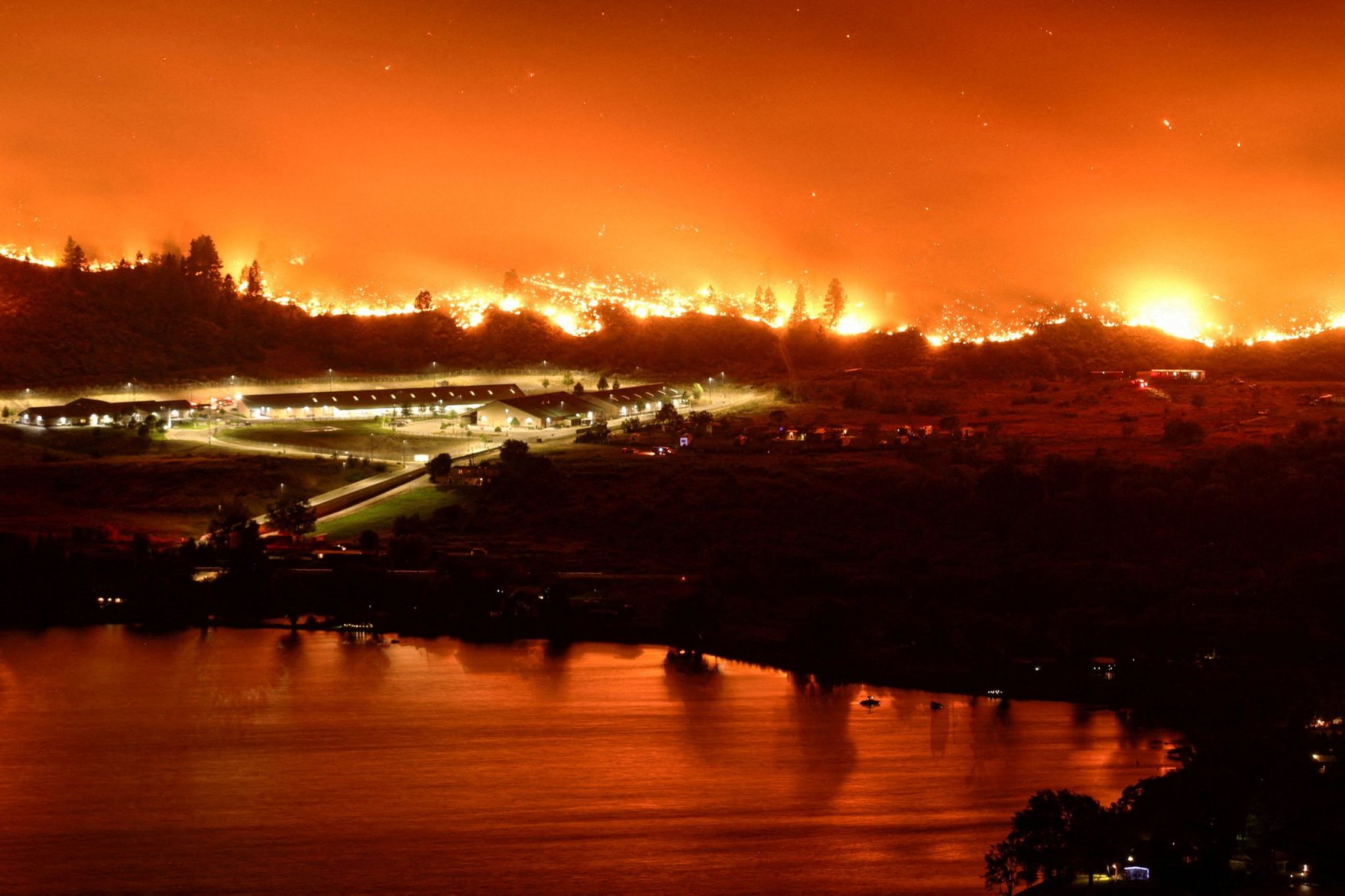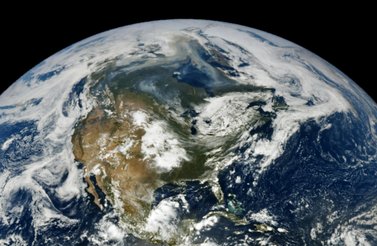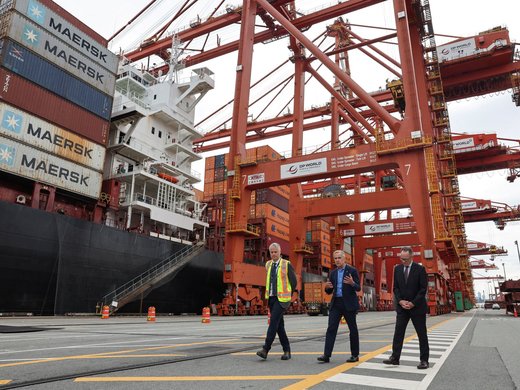For decades, Canada has prided itself on being a responsible global actor — a country that defends science, democracy and the rules-based international order. But in the era of climate disinformation, those values are under attack by illiberal, authoritarian and populist efforts, and our government’s silence is increasingly conspicuous.
This year’s G7 and North Atlantic Treaty Organization summits passed without any major new climate commitments, despite climate action having occupied a central place on the global agenda for much of the past decade — most notably with G7 leaders pledging 10 years ago to align their policies with the Paris Agreement, as well as subsequent actions such as the 2023 Clean Energy Economy Action Plan and the 2024 agreement to phase out coal. If the world’s largest economies and most powerful democracies collectively lose momentum, it will become far easier for other governments to follow suit — and far harder to sustain the policy ambition needed to keep global warming within safe limits. In that context, Canada has an opportunity to help shift the narrative: to make clear, through action, that democratic countries are not retreating on climate, but are instead redoubling their efforts in the face of new challenges. Canada cannot afford to sit back — and not only because of potential damage to our international reputation. The stakes are also personal.
Canada has become one of the most climate-vulnerable countries in the industrialized world. This year, only behind the explosive 2023 fire season in ferocity, is the third in a row in which Canada has experienced an extraordinary level of wildfires, which have displaced tens of thousands, choked cities with smoke and strained emergency services. In the North, the rapid loss of sea ice and thawing permafrost is transforming ecosystems, threatening infrastructure and undermining the livelihoods of Arctic communities. Sitting out the fight for climate truth while experiencing these impacts at home would be a contradiction — and a missed chance to protect both Canadians and the shared global environment.
Around the world, organized campaigns are working to undermine public trust in climate science, sow confusion about the causes and urgency of the crisis, and delay the policies needed to avert catastrophe. This isn’t just the work of fringe actors. Well-funded, highly coordinated networks — often backed by fossil fuel interests — are flooding social media with misleading content, exploiting the algorithms that favour outrage over accuracy, and using increasingly sophisticated tactics to erode the foundation of informed public debate.
This problem is not abstract. In Canada, we’ve seen false narratives about carbon pricing spread faster than corrections, ultimately contributing to the demise of the carbon pricing regime, and misinformation weaponized against renewable energy projects, Indigenous-led conservation efforts and even wildfire evacuation orders. Disinformation doesn’t just distort opinions — it can cost lives. As climate action is limited, severe weather events are becoming worse, and increasingly, during times of emergency, disinformation is muddying rescue efforts and derailing climate solutions.
Joining the Global Initiative for Information Integrity on Climate Change would cost nothing. Failing to join could damage Canada’s reputation as a serious and responsible actor on the world stage.
Canada’s Chance to Lead on Climate Disinformation
Recognizing this threat, a growing coalition of governments and civil society organizations has launched the Global Initiative for Information Integrity on Climate Change under the International Partnership for Information and Democracy. The initiative’s purpose is simple but vital: to safeguard the integrity of climate information, promote transparent and science-based public discourse, and strengthen public trust in climate action. It is backed by countries including Brazil, Chile, Denmark, France, Morocco, Sweden and the United Kingdom, along with multilateral partners such as UNESCO (the United Nations Educational, Scientific and Cultural Organization) and Reporters Without Borders.
Joining requires no financial commitment, and there are no binding legal obligations. Instead, participating governments commit to coordinated, values-driven action to counter climate disinformation by sharing best practices, supporting fact-based communication, and collaborating with both civil society and the private sector to protect the information ecosystem. In other words, it’s a high-impact, low-barrier step that signals a serious commitment to climate leadership without imposing major costs.
That combination makes it an especially logical fit for Mark Carney’s new Liberal government. This is a prime opportunity for Canada to demonstrate, to Canadians and the world, that our country remains committed to both the climate fight and the principles of liberal internationalism. It’s also a pragmatic way for the Liberals to rebuild domestic credibility on climate action without opening themselves to accusations of runaway spending or bureaucratic overreach.
Canada’s Leadership Fighting Climate Lies
The political case for joining this global initiative is straightforward. Canadians are increasingly viewing climate change as urgent, but public trust in institutions — including the government — is fragile. Disinformation thrives in that environment, exploiting uncertainty and polarization. By visibly joining an international effort to defend truth in climate policy, the government can reassure Canadians that it understands the information crisis and is willing to take action.
Internationally, the benefits are just as clear. COP30, the thirtieth UN Climate Change Conference, takes place in Brazil just weeks from now, and the conference will place unprecedented emphasis on the role of information integrity in enabling effective climate action. Participating in this initiative would position Canada alongside like-minded democracies committed to defending facts against manipulation — and in doing so, it would reinforce our reputation as a country that pulls its weight in global problem solving.
By contrast, staying on the sidelines carries real risks. Canada’s absence from the list of participants is already noticeable to those paying attention. The organization Green Central Banking has questioned whether Carney as prime minister can be as climate-friendly as he was as a central banker, while experts have increasingly condemned Canada’s climate targets as “critically insufficient.” As several more countries are expected to join the seven important allies who have already signed on in the lead-up to COP this November, the gap becomes harder to explain and easier to interpret as complacency or retreat from the responsible, liberal, democratic values Canada so often espouses.
Such values have been pivotal in allowing Canada to continue punching above its weight, especially in an increasingly multipolar world where more countries begin to eclipse the middle-power nation in both population numbers and economic might. In the current geopolitical climate, where authoritarian actors actively exploit disinformation to weaken democracies, that’s not a message we can afford to send.
This is not to say that joining the initiative is a silver bullet. Combatting climate disinformation will require robust action at home, including better media literacy, stronger platform accountability and transparent communication from the government. But it is an important and visible piece of the puzzle — one that aligns seamlessly with Canada’s long-standing foreign policy brand.
For decades, Canadian leaders of all stripes have recognized that defending the rules-based international order requires collaboration with allies to establish norms, build consensus and counter global threats. From peacekeeping to public health to arms control, we have stepped up when it mattered. Climate change — and the fight for truth about it — is one of those defining challenges.
Joining the Global Initiative for Information Integrity on Climate Change would cost nothing. Failing to join could damage Canada’s reputation as a serious and responsible actor on the world stage. Moreover, climate change is the challenge of our generation, and disinformation is increasingly being acknowledged as one of the key limitations to more effective climate action. As a result, failure to sign on will contribute to continued global warming and a new normal characterized by more record-setting wildfire seasons, extreme heat and cold events, as well as more flooding and drought for millions of Canadians across the country. It’s a simple choice, and one the Carney government should make without delay.
In the climate fight, the truth is under siege. Canada shouldn’t be a bystander. We should be on the front lines.




